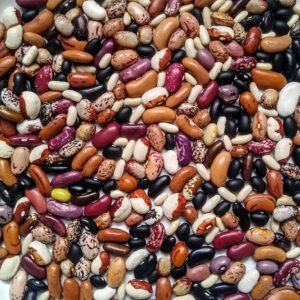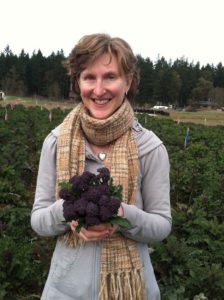
 Seed has been in the national headlines a lot these days. From a chance discovery of unauthorized genetically engineered (GE) wheat in Oregon to a Supreme Court decision involving patents on seed, our staff has been busy responding to news and events that may impact how seed is developed, owned, and managed in the U.S.
Seed has been in the national headlines a lot these days. From a chance discovery of unauthorized genetically engineered (GE) wheat in Oregon to a Supreme Court decision involving patents on seed, our staff has been busy responding to news and events that may impact how seed is developed, owned, and managed in the U.S.
First, the Supreme Court upheld the rights of patent holders to prohibit the saving and replanting of seed. The decision wasn’t surprising, but the case did have merit, as we explained in this Salon article. OSA believes strongly that the patent system is the wrong tool for protecting products of plant breeding. We also believe it’s possible to foster new innovation and receive fair returns on research and development without taking away the rights of farmers and plant breeders.
Second, the wheat event: GE wheat is currently not approved for commercial planting, yet made its way into an Oregon field more than 10 years after experimental trials ended in the state. The incident elucidates two important truths: 1) contamination happens (complete containment is impossible), and 2) current U.S. policy and oversight is inadequate for safeguarding the genetic integrity of organic and other non-GE seed, which we outlined in an Oregonian op-ed recently. We hope the Oregon incident serves as a wake-up call to regulators, and leads to stronger oversight.
Some days the headlines feel overwhelming, which is why I’m incredibly proud of OSA’s work to deliver proactive solutions to GMOs and restrictive patents through innovative organic research and education. Everyday our work creates a future where seed is produced in a manner that supports a healthy ecology and economy, where seed is bred collaboratively for regional needs and nutrition, and where new seed varieties remain in the public domain and support the organic community.
We also have great hope in the next generation of organic seed professionals. This year OSA is investing in their future by leading field tours for the Student Organic Seed Symposium, teaching the nation’s first online organic plant breeding course through Washington State University, and welcoming a new intern, Laurie McKenzie, who recently graduated from Oregon State University with a master’s in plant breeding. From farm field to higher education, we are realizing our vision of diverse and accessible organic seed one season at a time.
Help us change the headlines with a donation today.
My best this summer,
Micaela Colley
Executive Director
